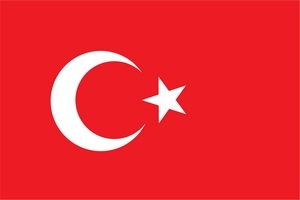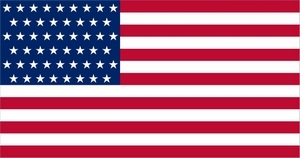How is the service of saving the subscriber number when the operator is changed

Mobile Number Portabilty (MNP) is the ability to save your phone number when switching to another operator. The mechanism is designed to stimulate competition among telecom operators and heal the market. But in practice, the introduction of the number transfer function can lead to different results. About the world experience MNP tell under the cut.
Why do users change operators?
Most often, switching to a different user operator is caused by the so-called brand fatigue. Negative impressions associated with paid subscriptions to content, quality of communication and payment details are accumulated.
Customer satisfaction is also affected by the decline in the quality of communication with the growth of the subscriber base. The ability to leave the previous number makes it easy to decide on the transition to another operator.
')
Picture of the development of MNP in the world
For the first time the opportunity to keep the number was realized in Singapore in 1997, but the attempt was unsuccessful. It was possible to transfer only calls and SMS, and any other service passed through the network of the previous operator. Here the service was fully implemented only in 2008.
The first successful attempt was also made in 1997, in the Netherlands. In 1999 they were joined by the United Kingdom and Hong Kong. Currently, the MNP service is available in more than 70 countries around the world.
The popularity of services in different countries is very different. For example, in Finland, where you can save a number for free, the share of transferred numbers in one year exceeded 20%. In the Netherlands, where MNPeta service will cost 9 Euros - 12% of the average ARPU ( Average revenue per user , average revenue per user per month), the proportion of numbers transferred is 7%. And in Germany, “taking” a number with you costs 29 Euros, so there the MNP service is completely unpopular - less than 1%. It is ahead of all in the number of transferred numbers Singapore, where 95% of subscribers changed the operator in the first year.
The popularity of MNP is influenced by several factors:
Development of the mobile market in the country
MNP service is most popular in countries whose mobile market is in an early stage of development. The most favorable conditions for its development are low mobile penetration, low quality services and undeveloped competition. One of the leaders in the popularity of MNP - Finland - at the time of introduction of the service in 2003 showed a mobile penetration rate of about 90% (for comparison: in Russia this figure now stands at about 180%), and Sonera operator dominated with a market share of 56%.
On the contrary, Japan at the time of the adoption of MNP in 2006 was very competitive in the mobile communications sector, and the service was unpopular, and the share of transferred numbers was only 0.2% (against the expected 30%).
Transition conditions and number of bureaucratic barriers
The popularity of MNP, of course, largely depends on the cost of the transfer, the need for personal presence and the period for which the transition can be made. Although the demand for services is not always inversely proportional to the cost. For example, in the UK, where it is provided free of charge, the proportion of numbers transferred is much lower than in Denmark, where MNP has to be paid around 10 euros.
Subscribers loyalty
Traditionally, the share of transferred numbers is low in countries where it is customary to conclude long-term (a year or more) contracts with a mobile operator. This practice has developed, for example, in the United States and Japan. In these countries, operators offer large discounts to subscribers at the conclusion of an annual contract, and the termination of such a contract implies high fines.
MNP Development Scenarios

It is important to understand that the transition procedure is developed by the regulator - a government agency, and not by the operators themselves. Four scenarios can be distinguished:
Aggressive script
It is typical for countries with limited state control. With the introduction of MNP, the weakest of the operators begins to dump, which leads to price wars.
Where: Turkey and Brazil.
Moderate script
Small operators are making efforts to capture a share in the corporate segment, competitors have a significant outflow of subscribers.
Where: Poland
Conservative scenario
Major players try to maintain the current market situation and limit potential losses. Thanks to a strong state regulator, competition is not expressed in price wars, but in the offer of broader sets of services, improving their quality.
Where: Czech Republic, Thailand, South Africa and Russia.
Optimistic scenario
Operators agree with each other and at the same time change their offers in such a way that the subscriber gains nothing during the transition. Very similar to the conservative scenario, but dumping prevents not the regulator, but the agreement of the operators.
Where: Israel and India.
World Top Cases
Turkey
 Until 2008, there was an almost complete monopoly of the operator Turkcell in Turkey, who actively opposed the transfer. In such conditions, the implementation of MNP was initiated not by the state, as is usually the case, but by the operators themselves - Vodafone and Avea. At their expense, a base was created, which was handed over to the regulatory authorities.
Until 2008, there was an almost complete monopoly of the operator Turkcell in Turkey, who actively opposed the transfer. In such conditions, the implementation of MNP was initiated not by the state, as is usually the case, but by the operators themselves - Vodafone and Avea. At their expense, a base was created, which was handed over to the regulatory authorities.Only on the first day, 50,000 applications for transfer were submitted, and in a couple of years the number of transferred numbers was already almost 60%.
Vodafone and Avea grew, respectively, to 18.3 and 12.8 million subscribers, respectively. The market share of Turkcell over four years has decreased from 76% to 49%. To stop losing customers, the operator significantly reduced the cost, which led to a general reduction in the cost of communication services (until 2008, the most expensive in Europe).
The service is provided free of charge and the process itself takes six working days.
Georgia
 The implementation of MNP in Georgia in 2011 is considered one of the most successful and fastest: all the work was completed in four months. By the end of 2011, fixed number portability was also implemented.
The implementation of MNP in Georgia in 2011 is considered one of the most successful and fastest: all the work was completed in four months. By the end of 2011, fixed number portability was also implemented.The service is free, the process takes up to three days.
Great Britain
 Here, the implementation of the MNP in 1999 was helped by an independent Ofcom regulator. The service was initially provided free of charge, but the operators had to pay for registration of the number (about £ 25).
Here, the implementation of the MNP in 1999 was helped by an independent Ofcom regulator. The service was initially provided free of charge, but the operators had to pay for registration of the number (about £ 25).The transfer time was reduced from a month to seven days only by 2005, and in 2009 it was limited to two hours and made it possible to go to another operator almost instantly.
The cost of implementing MNP in the UK exceeded the expected by almost $ 30 million, but the demand for the service was low. For the first five years, a little more than 5% of users took advantage of the opportunity to transfer the number.
USA
 Since 1997, LNP (Local Number Portability - the ability to transfer fixed numbers) has been operating in the USA, and MNP - since 2003. To launch it, we managed to use the architecture of the LNP intelligent network. As a result of the introduction of MNP, prices for mobile communications decreased by 6%, new favorable tariffs appeared. The total savings of subscribers amounted to about $ 120 million per month.
Since 1997, LNP (Local Number Portability - the ability to transfer fixed numbers) has been operating in the USA, and MNP - since 2003. To launch it, we managed to use the architecture of the LNP intelligent network. As a result of the introduction of MNP, prices for mobile communications decreased by 6%, new favorable tariffs appeared. The total savings of subscribers amounted to about $ 120 million per month.The service is free, and the transfer period is only a couple of hours. You can apply online.
India
 In India, which launched the MNP in 2011, the Mobile Number Portability Operator (MNPO) was created specifically for this purpose. It took responsibility for the maintenance of the database of transferred numbers. The subscriber can transfer the number within his zone. Only two zones - the north-west and south-east, each of them is served by a separate company. To create portability within the whole country with such a large area turned out to be economically inexpedient: in this case, the cost of a call to the transferred number would increase too much.
In India, which launched the MNP in 2011, the Mobile Number Portability Operator (MNPO) was created specifically for this purpose. It took responsibility for the maintenance of the database of transferred numbers. The subscriber can transfer the number within his zone. Only two zones - the north-west and south-east, each of them is served by a separate company. To create portability within the whole country with such a large area turned out to be economically inexpedient: in this case, the cost of a call to the transferred number would increase too much.The number transfer date in India is up to seven days. The application can be submitted via SMS.
Conclusion
Which of these scenarios is worse, and which is better? It all depends on the point of view. For the subscriber the best is an aggressive scenario, meaning a strong fall in prices. On the other hand, it can lead to the fact that the operators eventually agree and begin to raise prices again. The most preferred scenario for operators is optimistic. In this case, MNP does not stimulate - on the contrary, operators try to tie subscribers to themselves.
In Russia, a balanced model of MNP development has been chosen: on the one hand, there is no dumping and a strong fall in ARPU, on the other - operators have an incentive to compete and constantly offer new, more interesting products. As practice shows, prices for tariffs tend to decrease regardless of whether MNP is implemented in the country. However, this service can further stimulate competition, and after that - lower prices.
Source: https://habr.com/ru/post/305410/
All Articles